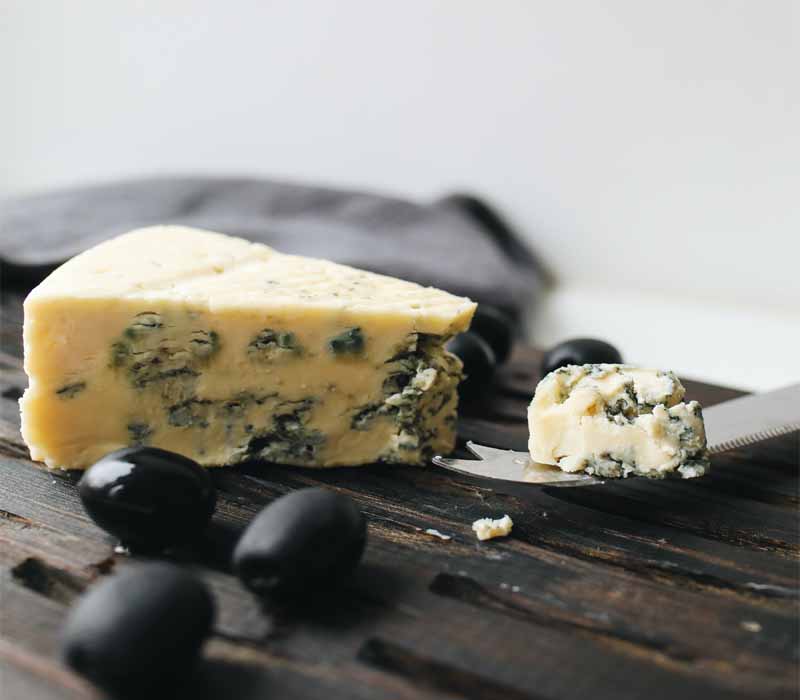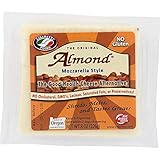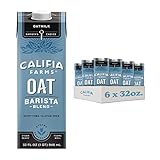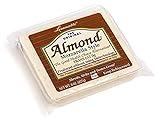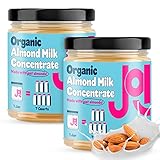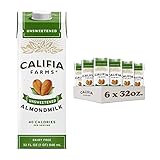From Soft and Spreadable to Hard and Sharp: Almond Milk Cheese Offers a Variety of Flavors and Textures to Enjoy. Enjoy the Richness and Creaminess of Cheese with Almond Milk Cheese, a Healthy and Dairy-Free Alternative.
Page Contents
What is Almond Milk Cheese?
A vegan substitute for conventional dairy cheese created from almond milk is almond milk cheese. It is combined with thickeners such as tapioca starch or agar-agar, and cultures are added to give it a cheese flavor and texture.
This is available in several flavors. It is a fantastic source of plant-based protein and frequently has fewer calories and fat than conventional dairy cheese.
One advantage is that it may be consumed by people who are vegan, dairy sensitive, or allergic to milk. As it uses fewer resources and has a smaller carbon footprint than conventional dairy cheese. It also serves as a more ecologically beneficial and environmentally friendly solution.
The Rise of Almond Milk Cheese: A Plant-Based Alternative to Traditional Dairy
It has become more and more well-liked as a vegan substitute for conventional dairy cheese in recent years. Being a vegan choice, without any animal components like milk, cream, or cheese, is one of the key advantages. It has a lactose intolerance or a dairy allergy. The fat and calorie content is frequently lower than that of conventional dairy cheese.
Pizzas, salads, and sandwiches may all benefit from the addition, which is available in a range of varieties including cheddar, mozzarella, and feta. Moreover, it may be melted and served as a sauce or dip.
It offers a delightful and wholesome substitute for individuals trying to cut back on or completely give up dairy, even if it may not taste precisely like typical dairy cheese. It will probably continue to gain appeal as a nutritious and environmentally friendly substitute for conventional dairy cheese as plant-based eating trends spread.

The Nutritional Benefits Compared to Dairy Cheese
When compared to conventional dairy cheese, it has several advantages. The following are some significant variations:
- Less fat and calories: It usually has fewer calories and fat than dairy cheese, making it a healthy alternative for anyone trying to lose weight or cut back on their fat intake
- The protein content is higher: It is a rich source of plant-based protein, which is essential for maintaining and rebuilding muscles. Comparable to the quantity found in dairy cheese, it has about 6 grams of protein per ounce
- It is lactose-free, making it a suitable alternative for people who are lactose intolerant or allergic to dairy
- High in vitamins and minerals: To make up for the nutrients lacking in dairy cheese, it is frequently fortified with mineral and vitamin content including calcium, vitamin D, as well as vitamin E
- It is an option for people who want to cut back on dairy or follow a vegan or plant-based diet. Even if it does not taste or feel exactly like typical dairy cheese. It also has various health advantages
The Flavor Profile of Almond Milk Cheese: How Does it Compare to Traditional Cheese?
It has a distinct flavor characteristic from regular dairy cheese, yet it may still be tasty and enjoyable. These are some significant contrasts between the two taste profiles:
- It has a very strong nutty taste that is not found in conventional cheese. The fundamental component, of almond milk, is where its flavor originates
- It could taste a little bit sweet because of the almonds’ inherent sweetness. The particular brand and flavor may affect this, though
- It has a creamy texture that is reminiscent of several classic pieces of cheese, including brie or camembert. But, depending on the individual brand, the texture may differ, and the type of almond milk cheese
- Distinctive taste profiles: It can have distinctive flavor profiles that are different from those of typical cheese. It is available in a range of varieties, including cheddar, mozzarella, and feta
Altogether, the flavor profile might differ significantly from that of conventional dairy cheese, but it offers a delectable and wholesome substitute for individuals trying to cut back on dairy or follow a plant-based diet.
A Guide to Pairing With Wines And Other Beverages
A combination may be made by enhancing the tastes of both by serving it with the appropriate wine or drinks. The following is a list of wines and other drinks that go well with almond milk cheese:
- White Wine: Light, crisp white wines like Pinot Grigio, Sauvignon Blanc, and Chardonnay go nicely with it. The nutty and somewhat sweet flavor pairs well with the acidity and fruitiness of these wines
- Red Wine: Light-bodied red wines like Pinot Noir, Beaujolais, and Grenache go well with it. These wines go well with the light flavor since they have less tannin in them
- Sparkling Wine: Sparkling wine pairs well with it because of its fizz, especially when it’s a little sweet wine like Prosecco as well as Moscato. The wine’s acidity and the cheese’s nutty taste combine to make a delicious and refreshing dish
- Beer: It goes well with light, crisp beers like Pilsner and IPA. The sharpness of the beer pairs well with the cheese’s nutty taste
- Alcohol-Free Drinks: Non-alcoholic drinks like sparkling water, lemonade, and iced tea go well with them. These beverages’ sweetness and tartness help bring out the cheese’s taste
The kind and flavor of the cheese, as well as the strength and acidity of the drinks, should all be taken into account when combining it with wines and other libations. Try out various pairings to determine which one works best for you.
Exploring The Different Types: Soft, Hard, And Everything in Between
There are many different kinds and tastes of almond milk cheese, from soft and creamy to hard and crumbly. Here is a quick rundown of the several varieties:
- Soft Almond Milk Cheese: Creamy in texture, soft frequently used as a spread or dip. Brie, Camembert, and cream cheese are a few examples of soft almond milk cheese
- Semi-Soft: While still reasonably creamy, semi-soft almond milk cheese has a stiffer texture than soft cheese.
- Hard Almond Milk Cheese: Sliced or grated, hard cheese has a crumbly feel. Aged cheddar and Parmesan are a couple of examples of hard cheese
Altogether, there are several varieties and tastes of almond milk cheese available, each with a distinctive flavor and consistency. It’s crucial to think about how you intend to use the cheese and the taste combinations you like before trying any of the several varieties.
The Future: Trends And Innovations in The Market
The market for almond milk cheese is fast expanding as more people seek plant-based alternatives to dairy goods. These are a few market advancements that are influencing the future of this industry:
- Product Line Expansion: These brands are growing their product lines to encompass a larger range of tastes and textures, particularly hard and aged cheeses. This growth is assisting in making almond milk cheese more adaptable and attractive to a broader spectrum of consumers
- While it is the most frequent foundation for plant-based cheese. Its manufacturers are also experimenting with cashew, walnut, and hazelnut milk. These milk can have varied taste profiles and textures, resulting in a greater range of plant-based cheeses
- Production Innovations: Brands are experimenting with novel manufacturing processes to improve flavor and texture. To produce a more authentic cheese experience, some manufacturers use classic cheese-making procedures such as fermentation and aging
- Sustainability: Almond milk cheese businesses are emphasizing sustainable development in their manufacturing methods. Such as employing eco-friendly packaging and procuring ingredients through ethical and environmentally conscious sources
- It is growing increasingly popular in the food service market as more restaurants and food service organizations provide plant-based choices. This trend is assisting in increasing consumer demand for almond milk cheese and making it more broadly available
Overall, the future of almond milk cheese seems promising, with the business continuing to develop and innovate. Almond milk cheese is set to become an everyday staple in many families and restaurants throughout the world as more customers adopt plant-based diets and look out for ethical food alternatives.
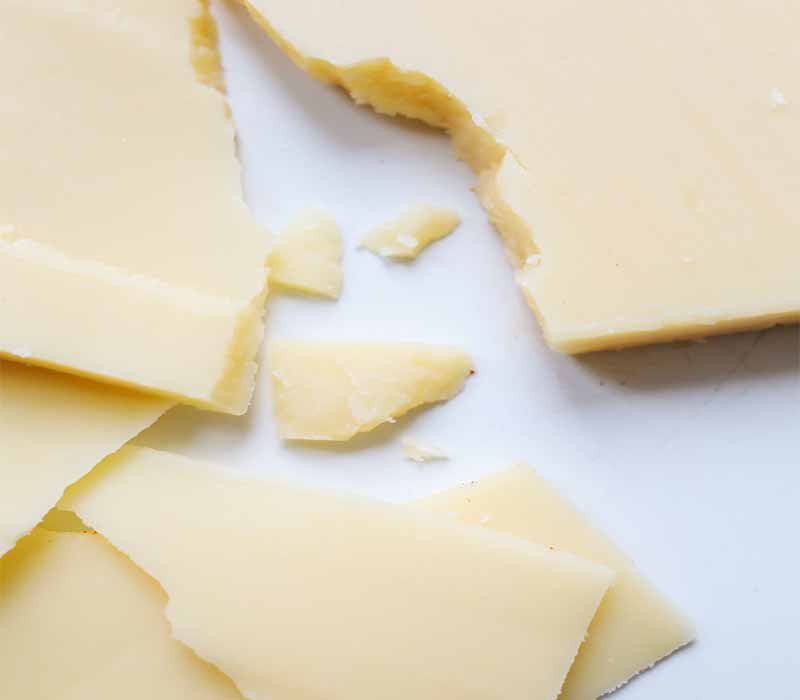
The Sustainability of Almond Milk Cheese: A Comparison to Dairy Cheese Production
Many factors come into play when comparing the sustainable development of manufacturing to dairy cheese production. Here are some important considerations:
- Dairy cheese needs a vast quantity of land either grazing or feed production. This has the potential to result in deforestation and habitat degradation. It is manufacturing, on the other hand, requires less space since almond trees can thrive in dry places and require less maintenance than typical dairy farms
- Water Consumption: Dairy cheese manufacturing is water-intensive since cows require a lot of water for drinking and washing. Moreover, producing fodder for cows might necessitate large volumes of water
- Dairy cheese manufacturing contributes significantly to greenhouse gas emissions since cows release methane during digestion and waste handling can produce nitrous oxide. It is manufacturing, on the other hand, creates fewer greenhouse gas emissions since it does not require the manufacture of animal products
- Waste Management: The manufacture of dairy cheese can generate a substantial quantity of the trash, including manure and other byproducts. However, the waste is usually easier to control and dispose of
Nevertheless, while its manufacturing has an environmental impact, it takes less land, and water, and emits fewer greenhouse gases than dairy cheese production. Furthermore, the manufacture of almond milk cheese does not include animal agriculture, which might have extra environmental consequences.
Conclusion
Finally, it is a plant-based alternative to typical dairy cheese that is becoming increasingly popular among customers. It has various advantages, including a smaller environmental effect than dairy cheese production, and it is ideal for persons who are lactose intolerant or follow a vegan diet.
While there are some taste and texture variations between almond milk cheese and dairy cheese, the range of flavors and textures available in almond milk cheese is expanding, making it a more flexible and attractive alternative.
We have more related articles,
- Treat Yourself to the Delightful Taste of Chocolate Almond Milk
- Eggo Waffles: Little Brothers | You Can’t Resist
- The Best Almond Flour Fried Chicken For You
- How Soy Sauce Soup Made and Is It Bad for You?
- Make the Switch to Olive Oil Mayonnaise for a Better You
FAQs
The vegan cheese market has improved over the past few years but so far nothing beats the taste of homemade “nut” cheese. You can use a variety of nut or grain milk to make cheese but I love the taste of almond milk the most. Try this recipe and you too will agree!
It tastes like regular cheese (mostly) and melts perfectly.
This Almonds cheese contains lots of healthy fats, fiber, protein, magnesium, and vitamin E. The health benefits of almonds include lower blood sugar levels, reduced blood pressure, and lower cholesterol levels. They can also reduce hunger and promote weight loss.

